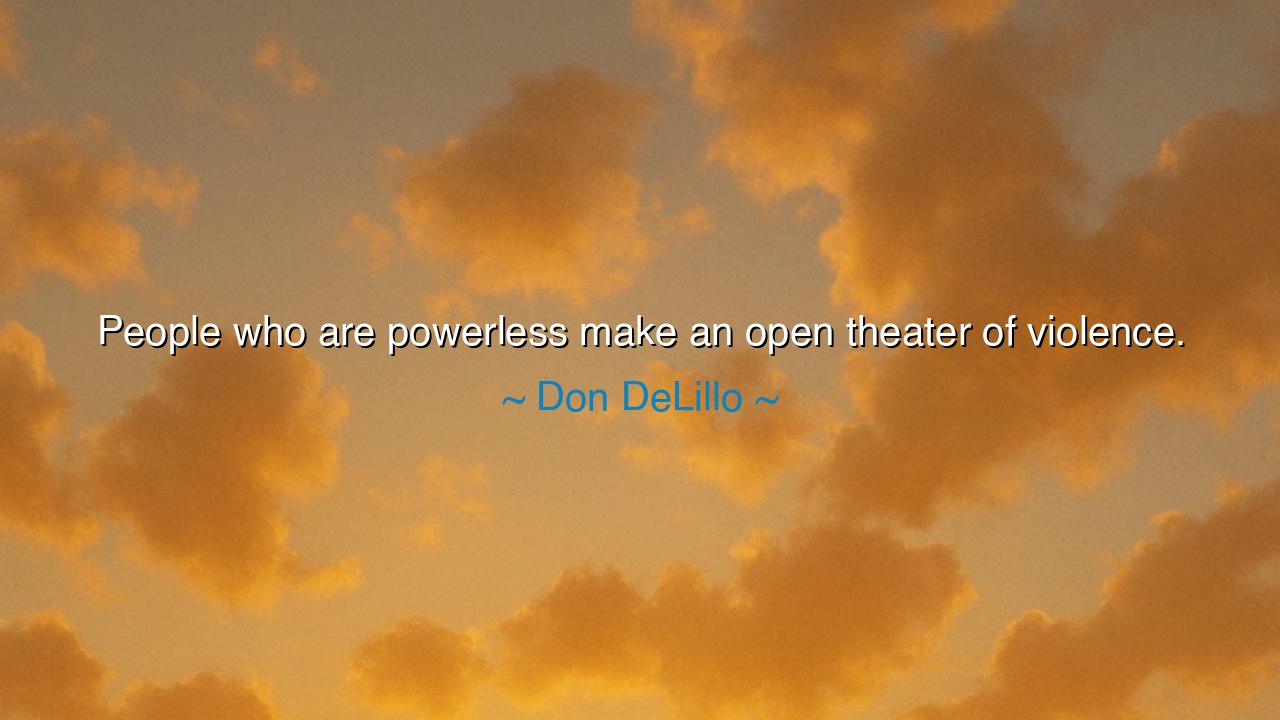
People who are powerless make an open theater of violence.






Don DeLillo, the chronicler of modern unrest, revealed with piercing honesty: “People who are powerless make an open theater of violence.” In this, he speaks of a grim truth that has echoed since the dawn of civilization: when men feel stripped of dignity, voice, and hope, they turn to violence as their stage, for it is the only way left to make their suffering seen. What they cannot command with law or influence, they proclaim with fire and blood, their anguish transformed into spectacle.
The essence of this wisdom is that powerlessness breeds desperation. Those denied the instruments of justice or the language of influence will often seize the only tool left to them—raw force. It becomes a kind of theater, for violence is meant not only to destroy, but to be witnessed. It demands attention, it cries out to the world: “See us, hear us, know that we exist.” Thus, violence becomes not just an act, but a performance of pain and rebellion.
History bears its heavy witness. In the French Revolution, peasants long starved and unheard took to the streets, their fury erupting in blood. They stormed the Bastille not only to free prisoners, but to create a spectacle, to show the world that the forgotten could not be silenced forever. Their violence, savage and theatrical, was the language of the powerless crying for justice.
So too, in the struggles of the twentieth century, the civil rights movement in America contrasted two paths. Many chose the way of peaceful protest, yet others, long ignored and enraged, turned to riots and flames. Their destruction was not without meaning—it was theater, born of powerlessness, a cry to force those in power to acknowledge their humanity. The lesson, as DeLillo teaches, is that when channels of justice are sealed, the powerless open the stage of violence to speak.
O children of tomorrow, take this not as a call to justify violence, but as a warning: wherever people are left powerless, there the seeds of theater and blood are planted. If justice is denied, the stage will be claimed by fire. The wise must therefore ensure that every voice is heard, that no people are left so desperate that they turn to destruction to prove they live. Remember DeLillo’s counsel: powerlessness breeds violent theater, but true power lies in justice, which alone can quiet the need for such desperate displays.






AAdministratorAdministrator
Welcome, honored guests. Please leave a comment, we will respond soon